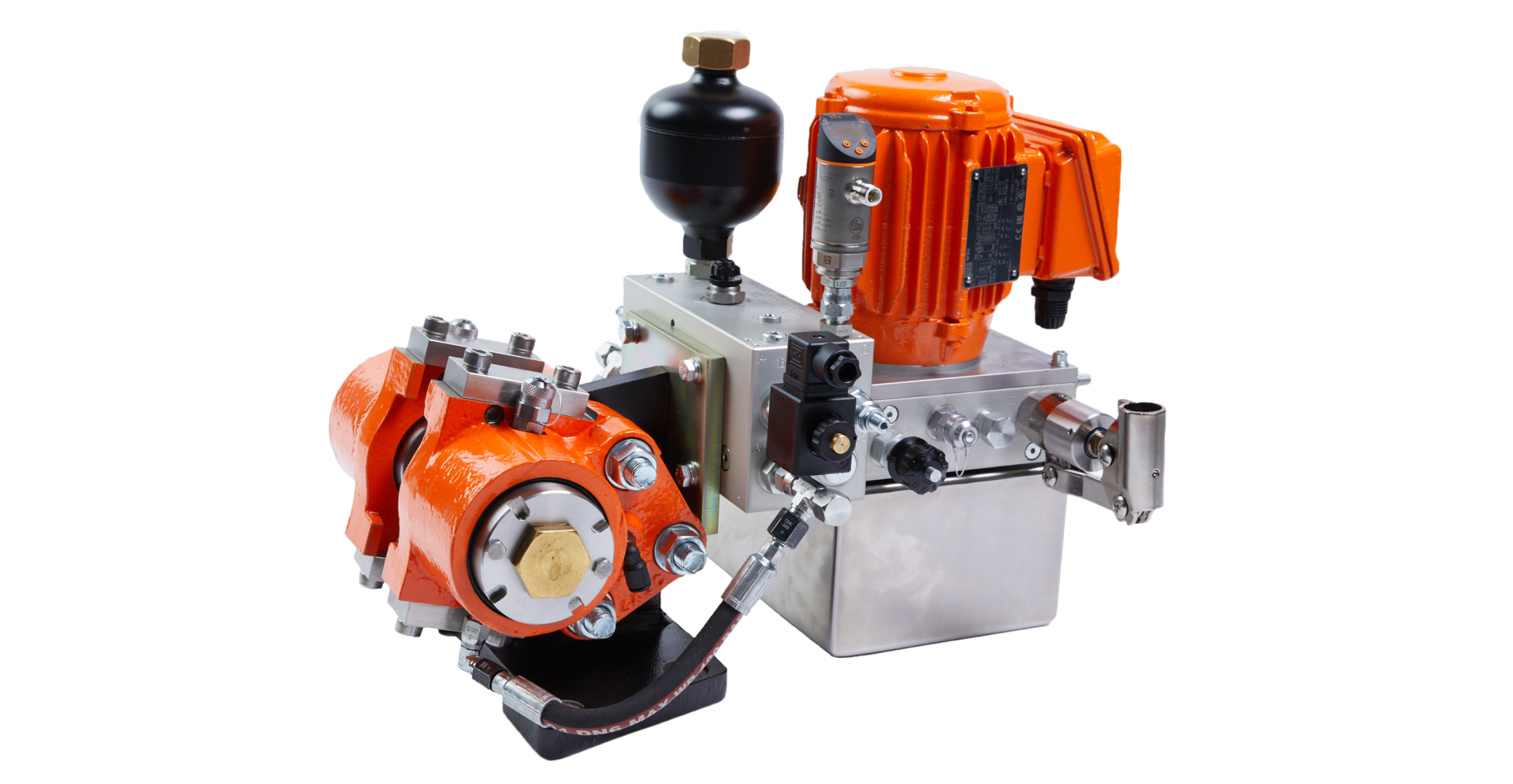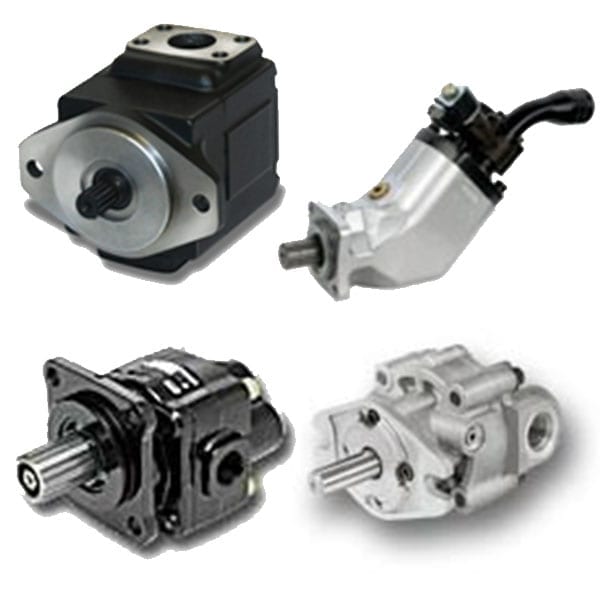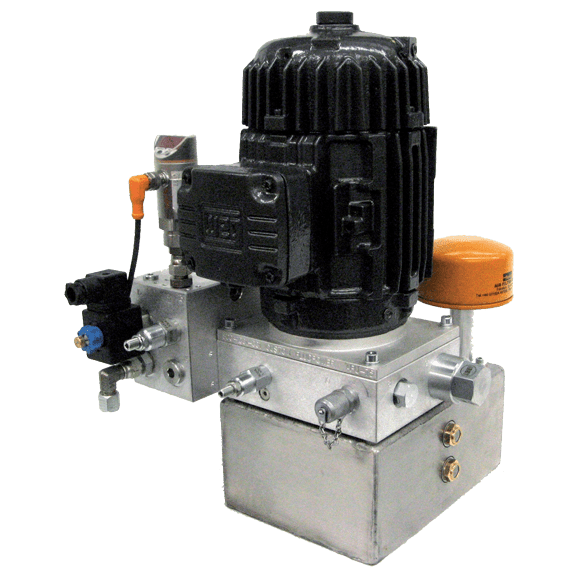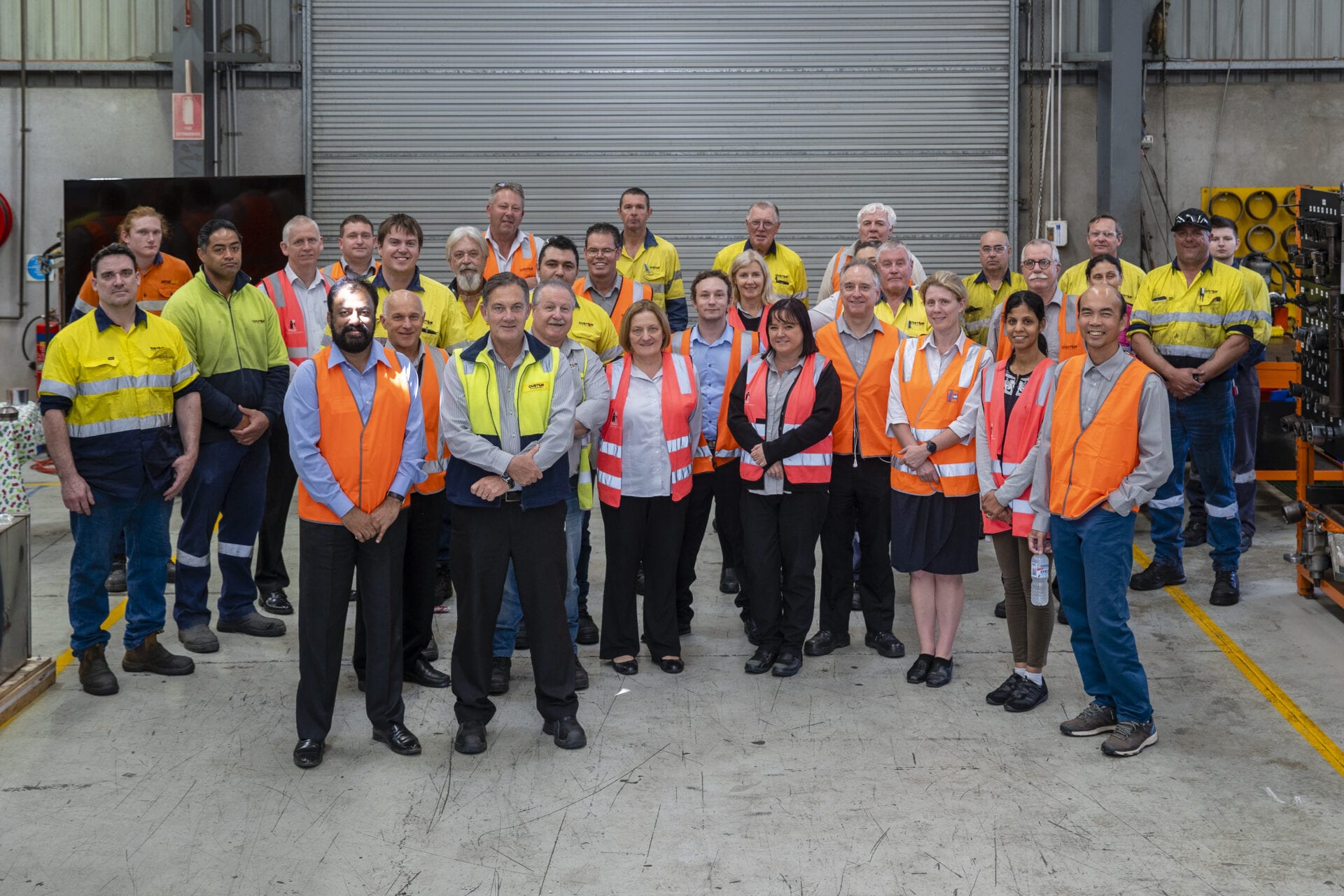News & Insights
Hydraulic power pack: Understanding the basics & choosing the right unit for your needs.

Understanding a hydraulic power pack (also referred to as a hydraulic power unit or HPU) is crucial for anyone involved in manufacturing, construction, or heavy machinery sectors. Hydraulic power units serve as the backbone of hydraulic systems, enabling efficient and precise movement in various applications.
In this blog, the experts at Custom Fluidpower will guide you through hydraulic power packs, shedding light on their fundamental principles and functions. We’ll explore how they generate and transmit power, their key components and their significance in a range of heavy industries such as mining, marine, manufacturing and agriculture.
For industrial applications, it is essential to ensure an experienced team are supporting your requirements when it comes to hydraulic systems and hydraulic power packs, with this blog providing valuable insights.
What is a hydraulic power unit/hydraulic power pack?

A hydraulic power pack, is a self-contained system that generates and delivers hydraulic power to various machinery and equipment. It serves as a compact powerhouse that converts mechanical energy into hydraulic energy and enables precise and efficient movement.

hydraulic pumps

motors
Some of the key components of a hydraulic power unit include (but are not limited to) hydraulic pumps and motors. So how does a hydraulic power pack work? Well the pump, driven by an electric motor or an internal combustion engine, pressurises hydraulic fluid, typically oil, circulates throughout the system which then generates the force to drive the hydraulic system’s application.
Hydraulic power units play a pivotal role in numerous industries like mining, manufacturing, construction, material handling and transportation. They power a wide array of applications, including hydraulic presses, lifts, cranes, loaders, steering systems and machine tools.
Why are hydraulic power packs important?

Hydraulic power packs are essential components in various industries and applications. One of the reasons they are so ubiquitous is because they play a crucial role in generating and delivering power efficiently in hydraulic systems. The power generated by hydraulic power units can be precisely controlled, allowing for smooth and accurate movements in applications such as mining equipment, manufacturing machinery and material handling systems.
Hydraulic power packs are also compact and versatile in design. They are designed to be compact and self-contained units, making them highly versatile and easy to integrate into different systems of different sizes. They can also be customised and adapted to meet specific requirements, giving them even more flexibility.
Lastly, hydraulic power packs are known for their durability and reliability in demanding industrial environments. They are designed to withstand high pressures, extreme temperatures and heavy-duty operations. The use of high-quality materials and robust construction ensures their long-term performance and resistance to wear and tear.
What are the types of hydraulic power packs?
Electric hydraulic power pack
These power packs are operated using electricity as the power source. They are connected to an electrical power supply and typically use an electric motor to drive the hydraulic pump. Electric power packs are widely used in industrial settings where a reliable and constant source of electricity is available. They offer precise control, low noise levels and are environmentally friendly since they do not emit exhaust gases.
The Custom Fluidpower APU75 + APU220

APU 75

APU 220
Custom Fluidpower manufactures a range of brake Australian Power Units (APU) including a 0.75, 0.37 and 2Kw electric motor versions. These APU’s are available in various configurations and can be specifically designed to customer’s requirements. Some of the standard versions include:
Quick lift – Where the requirement is to have the caliper lifted quickly
Proportional braking – Where the braking time needs to remain constant, regardless of drive loads
Redundancy – Redundancy valves for all valving in the APU, designed for enhanced safety requirements
Learn more about Custom Fluidpower’s Hydraulic Power Units for Brakes here.
Diesel hydraulic power pack
Diesel hydraulic power pack utilise a diesel engine as the power source. They are commonly used in remote locations or outdoor applications where access to electricity may be limited or unreliable. Diesel power packs offer high power output and are suitable for heavy-duty applications that require mobility, such as construction sites, mining operations and agriculture. They are known for their durability, fuel efficiency and ability to operate in harsh environments.
Petrol hydraulic power pack
Petrol hydraulic power packs are similar to Diesel hydraulic power packs but use petrol as the fuel source instead. They are often used in smaller-scale applications or situations where petrol is more readily available. They are relatively lightweight, small hydraulic power units that can also function as portable hydraulic power packs, making them suitable for tasks such as maintenance and repair work, small-scale construction and landscaping.
How to choose the right hydraulic power pack for your needs

Hydac Remote Diagnostics
Choosing the right hydraulic power unit involves a few steps. You need to consider assessing your power requirements; evaluating your space constraints; considering the power source; assessing control options; evaluating system integration; and considering the reliability and maintenance of your unit.
Start by determining the power needs of your hydraulic system, including the nominal pressure, nominal flow rate and component nominal power demands. Evaluate available space and installation constraints, considering the physical dimensions and any specific requirements. Assess the most suitable power source, such as electric, diesel, or petrol, based on factors like availability, portability, efficiency and emissions regulations.
Consider the control options needed, whether basic on/off controls will suffice or more advanced controls are necessary. Ensure compatibility between the control system and the hydraulic power unit. Evaluate the compatibility of the power unit with your hydraulic system. Make sure you check out different hydraulic power units manufacturers, inspecting their specifications, pump type, pressure rating, flow characteristics and connection interfaces.
Assess the reliability, durability and maintenance requirements of the hydraulic power unit. Look for units known for their robust construction and resistance to wear and tear. Consider factors like accessibility for servicing, ease of component replacement and availability of spare parts.
Don’t forget to seek out hydraulic power unit experts

If you are unsure about the selection process; have specific requirements; or need further resources and advice on your hydraulic power pack, consult with hydraulic system experts like Custom Fluidpower. Our friendly staff can provide valuable insights, recommend suitable options and help you make an informed decision based on your specific needs and budget.
